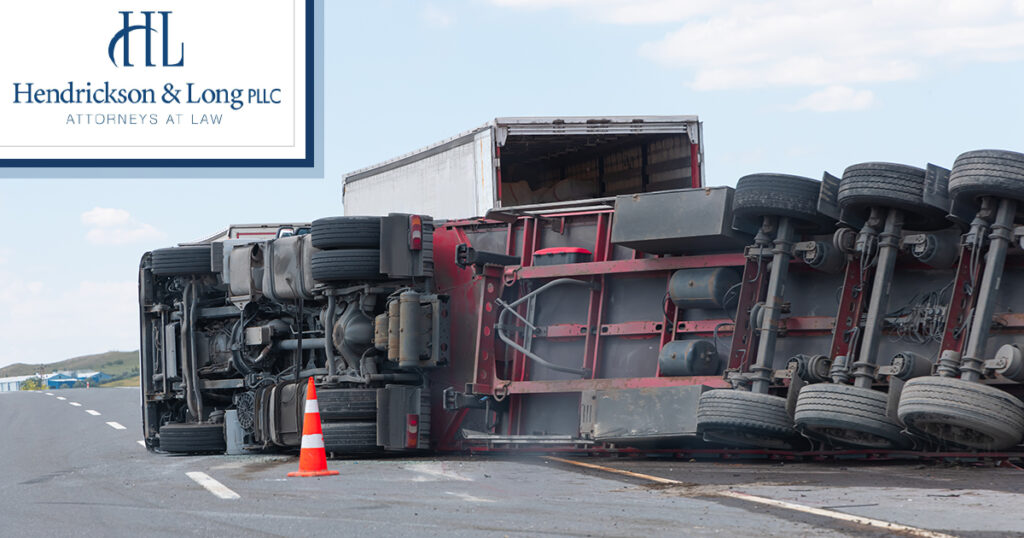What’s the Difference Between Negligence and Gross Negligence in West Virginia?

When personal injury victims seek compensation for injuries they’ve suffered due to someone else’s negligence, it’s important to recognize that each state has different limitations.
Negligence laws provide a general understanding or framework for how different states handle compensation in personal injury claims. Details surrounding your claim, such as the severity of injury or damages and the actions of the at-fault party, are important in determining negligence.
But what is the difference between negligence and gross negligence in West Virginia?
Both kinds of negligence apply to an at-fault party’s failure to meet the legal standard of care we expect, but they are distinctly different when it comes to personal injury cases.
In this blog, we’ll explain the basic difference between those two concepts, and explain why that distinction matters in your case.
Understanding Ordinary Negligence
Negligence or ordinary negligence are often used interchangeably regarding personal injury cases. Ordinary is often used to denote the difference from gross negligence.
Ordinary negligence is the more common type of negligence that occurs when someone fails to exercise reasonable care in their actions or decisions. That is when a person acts in a careless manner that causes harm to another person.
Examples of ordinary negligence are:
- A driver not yielding right of way to another driver and causing a car accident
- A customer trips and falls due to poor lighting in a store parking lot
- A pedestrian sustains an injury after being hit with debris from a demolition site
- A motorcyclist is run off the road due to another driver not checking their blind spots properly
An important thing to know about negligence laws in West Virginia is that our state holds to a modified comparative negligence law. This means that, even if the other party is proven to be negligent, if you are deemed to be at least partially at fault for the accident, it may affect the outcome of your claim.
Your lawyer can explain this further. Hendrickson & Long, PLLC is here to help.
Determining Gross Negligence
West Virginia Code 55-7D-2 defines gross negligence as voluntary or conscious conduct, including failure to act, by a person who knew that their conduct or inaction would likely cause harm to the health or well-being of another person.
In layman’s terms, it means that the at-fault party knew that their action or inaction could cause harm, and they chose to act anyway, regardless of the potential for a harmful outcome.
Examples of gross negligence are:
- A property owner knowing about a safety risk and doing nothing to address it or warn others
- A person getting behind the wheel of a car while under the influence of alcohol or drugs
- A construction site not putting up safety barriers around dangerous machinery for passersby
- A person acting in a manner with the intent to cause harm, such as road rage against another driver
Why These Differences Matter to Your Case
When you have a personal injury claim, your lawyer will look at all the details surrounding your injury to determine if negligence applies to your case.
To pursue a negligence claim, your lawyer must prove that the at-fault party acted in a careless manner. This is done by establishing that the defendant owed you a legal duty of care, the defendant breached that duty, that breach of that duty caused your injuries, and that you were injured and suffered damages.
Ordinary negligence can be proven using the elements mentioned above, however, gross negligence is often harder to prove. Your lawyer will have to determine that the defendant was aware of the risks before they chose to act or that they failed to take necessary precautions against those known risks.
Understanding and establishing these differences is key to the success of your case and can be the make-or-break moment for receiving the proper amount of compensation you’re owed.
The bottom line is that if someone else’s careless mistake caused injury or damage to you, you have a legal right to be compensated, no matter if it is proven to be ordinary negligence or gross negligence.
If you need assistance establishing which type of negligence applies to your personal injury claim, or if you think your it may fall under West Virginia’s modified comparative negligence doctrine, our team at Hendrickson & Long, PLLC can help.

